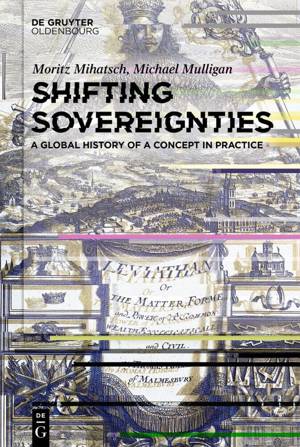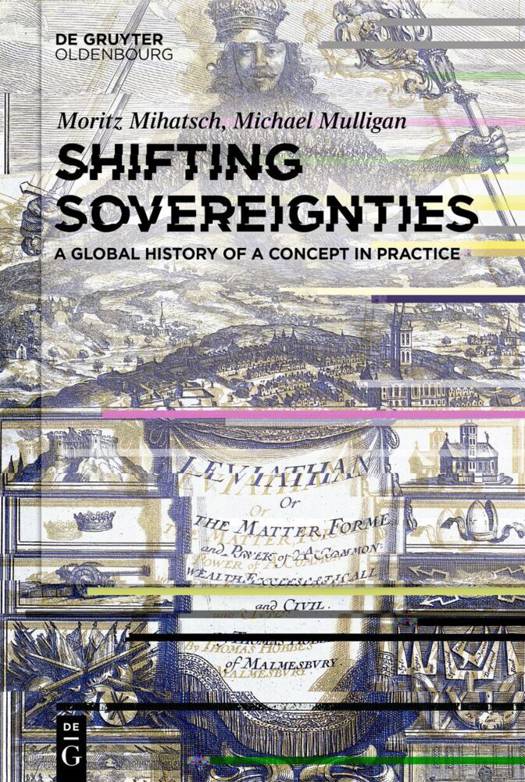
- Afhalen na 1 uur in een winkel met voorraad
- Gratis thuislevering in België vanaf € 30
- Ruim aanbod met 7 miljoen producten
- Afhalen na 1 uur in een winkel met voorraad
- Gratis thuislevering in België vanaf € 30
- Ruim aanbod met 7 miljoen producten
Zoeken
Shifting Sovereignties
A Global History of a Concept in Practice
Moritz Mihatsch, Michael Mulligan
Hardcover | Engels
€ 63,45
+ 126 punten
Omschrijving
Shifting Sovereignties explores practical manifestations of sovereignty from antiquity to the Anthropocene. Taking a global-history perspective and centring Africa, the Middle East, and Asia, it destabilises overly neat theoretical notions of the concept. Shifting Sovereignties shows that, in practice, sovereignty is far from absolute, perpetual, indivisible, or supreme; rather it is fuzzy, compromised, fragmented, and layered. From these observations, the authors derive a historical conceptualisation which makes change and contingency core aspects of the understanding of sovereignty. Rather than understanding sovereignty as a characteristic of individual states, Mihatsch and Mulligan propose the notion of "sovereignty regimes" frameworks of legitimation enforced through mutual recognition. These regimes are created and managed by more or less institutionalised structures which embody what the authors call "system sovereignty." Sovereignty regimes and system sovereignty are, like sovereignty itself, continuously changing and contingent. This process of change forms the core of the book. Shifting Sovereignties thus contributes a practical, historical perspective on a concept which is foundational in political science, international relations, and international law.
Specificaties
Betrokkenen
- Auteur(s):
- Uitgeverij:
Inhoud
- Aantal bladzijden:
- 394
- Taal:
- Engels
Eigenschappen
- Productcode (EAN):
- 9783111446561
- Verschijningsdatum:
- 27/01/2025
- Uitvoering:
- Hardcover
- Formaat:
- Genaaid
- Afmetingen:
- 156 mm x 234 mm
- Gewicht:
- 784 g

Alleen bij Standaard Boekhandel
+ 126 punten op je klantenkaart van Standaard Boekhandel
Beoordelingen
We publiceren alleen reviews die voldoen aan de voorwaarden voor reviews. Bekijk onze voorwaarden voor reviews.











